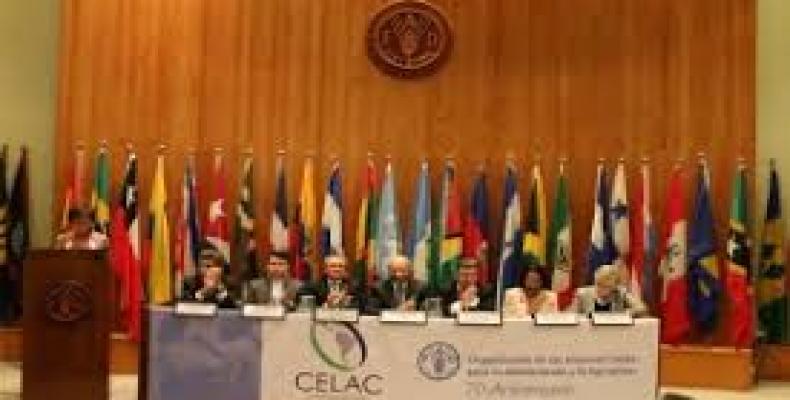CELAC, the Community of Latin American and Caribbean States, has just arrived at the sixth year of its foundation in December 2011 in Caracas, Venezuela, and is still involved in the struggle against hunger and poverty, one of its top priorities as evidenced in its first Summit, held in Chile in twenty thirteen.
One year later, in Havana, the thirty three member nations of this hemispheric integration mechanism agreed with the United Nations Food and Agriculture Organization – the FAO – on a project to fight hunger in the region.
Therefore, the Twenty twenty Five Plan for Security, Nutrition and Hunger Eradication Project by CELAC was formally adopted at a Summit held in Costa Rica, with the aim of guaranteeing the general access in the region to the availability, use and stability of food supplies.
The agreement foresaw an effective cooperation between CELAC and FAO, a United Nations institution that has systemically endorsed and supported the CELAC work towards the promotion of food supplies.
The FAO has widely acclaimed the impact of this initiative, recalling that several nations, such as Bolivia, Nicaragua, Venezuela and El Salvador have already aligned their food producing policies with the goals proposed by the project with excellent results in the struggle against hunger and malnutrition.
El Salvador and FAO worked closely, along with other members of the Promote Women group to promote a gender strategy that would enhance the role of females, currently applied with much success in Bolivia, Paraguay and El Salvador and soon to be implemented in Haiti.
El Salvador is playing a major role in the gender promotion scheme. Its domestic success in the implementation of the FAO project –according to executives of that UN AGENCY-- shows that it will not be possible to eradicate hunger nor rural poverty while half of the areas population – that is millions and millions of women-- do not apply their strength to the success of the program.
The United Nations Food and Agriculture Organization recalls that Latin America was the first area in the world to propose the goal of the eradication of hunger by the year 2025, a proposal that has also been assumed by CELAC through its latest plan for Food Security in the area.
The initiative shows the worth of the common political goal of the region that has allowed the coordination of efforts and an effective implementation of actions.
It is a goal that has been assumed by the thirty three nations that compose the Community of Latin American and Caribbean States and has received enthusiastic full support from the United Nations Food and Agriculture Organization, the FAO.


